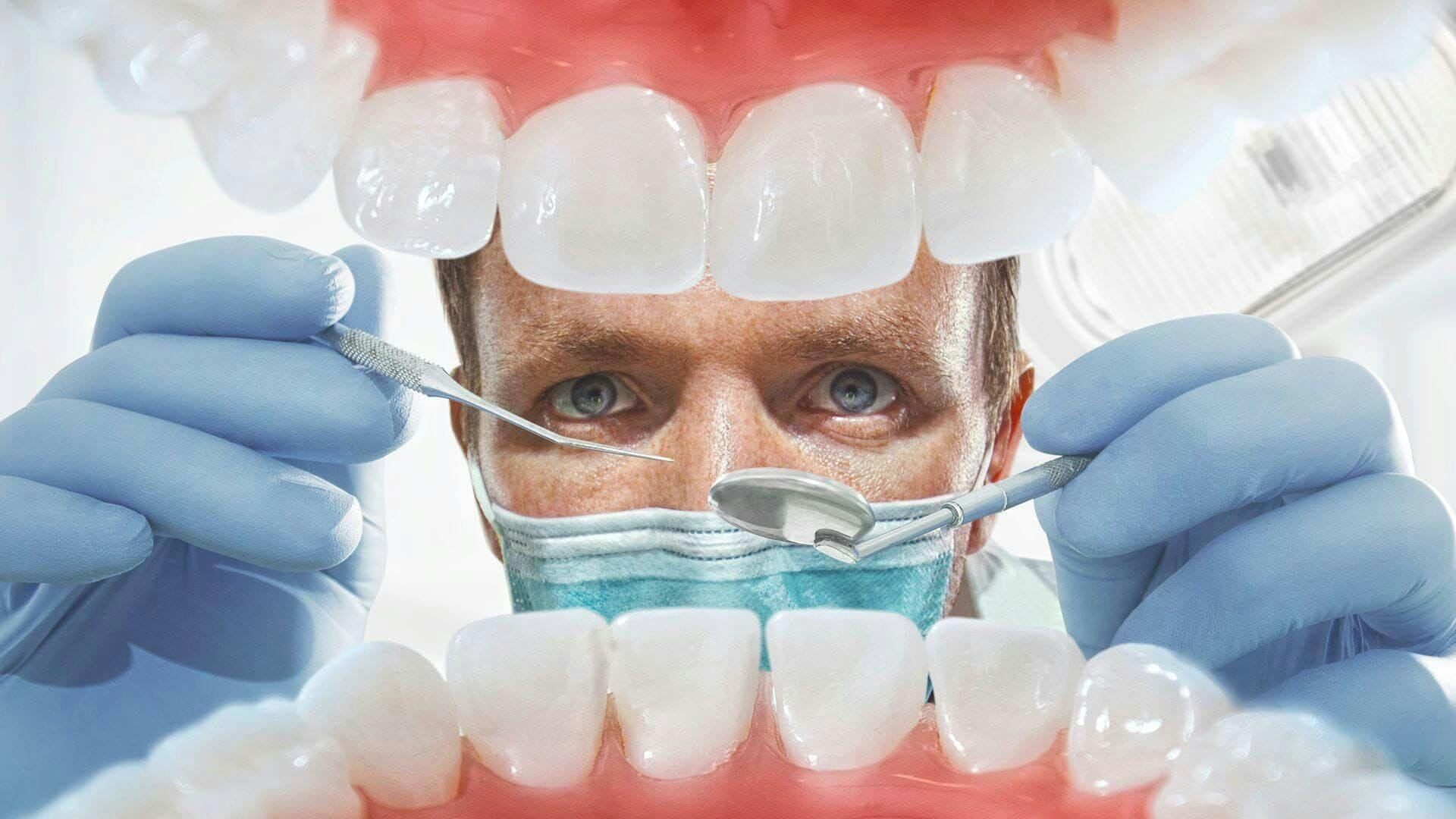Your Guide to Selecting the Right Dentist Eugene OR for Quality Solution
Your Guide to Selecting the Right Dentist Eugene OR for Quality Solution
Blog Article
A Guide to Common Dental Conditions That Require a Dentist's Care
Understanding the range of oral problems that demand professional treatment is vital for maintaining optimum oral health. Toothaches, as an example, can be symptomatic of extreme problems such as cavities, fractured teeth, or abscesses, each needing certain interventions like dental fillings or root canals. Periodontal disease, from the very early phases of gingivitis to extra extreme periodontitis, underscores the relevance of normal dental check-ups and cleansings. Additionally, affected knowledge teeth and jaw problems can introduce significant discomfort and difficulties. Guaranteeing prompt sees to the dental professional can minimize these issues properly, but just what are the therapies and indications involved?
Toothaches
Toothaches are a typical oral problem that can range from moderate pain to severe discomfort, frequently suggesting a hidden issue that calls for specialist focus. This pain can originate from a selection of sources, consisting of dental tooth cavities, broken or fractured teeth, and dental abscesses. Each of these problems presents considerable risks if left without treatment, potentially resulting in much more serious problems.
Dental dental caries, also understood as caries, are created by the build-up of plaque that erodes tooth enamel, leading to openings or pits in the influenced teeth. Abscesses are excruciating infections at the origin of a tooth or between the gum and a tooth, typically resulting from extreme decay or untreated cavities.
Effective therapy of toothaches includes addressing the source. This may include dental fillings for tooth cavities, crowns for fractured teeth, or origin canals and anti-biotics for abscesses. Very early intervention by an oral expert can stop more degeneration and alleviate pain, ensuring ideal oral wellness.
Gum Tissue Disease
Periodontal disease, a common yet commonly ignored oral condition, shows up with inflammation and infection of the periodontals and sustaining tissues. This problem largely happens in two phases: gingivitis and periodontitis. Gingivitis, the milder kind, offers with symptoms such as red, puffy periodontals that might hemorrhage quickly throughout brushing or flossing. If left neglected, gingivitis can proceed to periodontitis, a more severe form characterized by the damage of the supporting bone and connective tissue, ultimately leading to missing teeth.
The key root cause of periodontal disease is microbial plaque, a sticky, colorless movie that regularly creates on teeth. Poor oral hygiene, smoking, hereditary tendency, and certain clinical problems, such as diabetes, can intensify the risk of developing gum tissue illness. Normal oral exams are important for early detection and monitoring of this problem.
Treatment for periodontal illness varies from professional dental cleansing and scaling to advanced procedures like root planing and periodontal surgery, depending on the seriousness. Keeping good oral hygiene methods, consisting of cleaning twice daily, flossing, and making use of an antiseptic mouth wash, can substantially reduce the risk of gum illness and advertise healthier gums.
Tooth Cavities
Dental caries, additionally referred to as tooth decays, are a typical oral condition defined by the devastation of tooth enamel because of acid-producing microorganisms in the mouth. These bacteria thrive on sugars and starches from food and beverages, generating acids that progressively wear down the enamel, bring about tooth cavity formation.
Early-stage tooth cavities might not reveal signs and symptoms, yet as they advance, they can cause toothache, level of sensitivity to chilly or hot, visible holes or pits in the teeth, and discoloration. If left neglected, dental caries can permeate much deeper layers of the tooth, possibly causing extreme discomfort, infection, and even tooth loss.
Protecting against dental caries involves a mix of good oral health methods and dietary practices. Routine cleaning with fluoride tooth paste, flossing, and routine dental examinations are critical. Dentists might likewise advise extra safety nets, such as fluoride treatments and recommended you read dental sealers, to secure teeth from decay.
Minor cavities can be resolved with oral fillings, which recover the tooth's framework. Extra innovative instances might require crowns or even origin canal therapy if the degeneration has gotten to the tooth's pulp.

Impacted Wisdom Teeth
Impacted knowledge teeth are a widespread dental issue that takes place when the 3rd molars, typically referred to as knowledge teeth, stop working to fully emerge or line up effectively within the mouth. This condition commonly arises from not enough space in the jaw or an unusual growth angle of the teeth. Impacted knowledge teeth can lead to a selection of complications, including infection, discomfort, and damages to surrounding teeth.
When wisdom teeth come to be affected, they are frequently partly erupted or remain completely underneath the gum tissue line. This partial eruption can create a path for germs to get in the gums, causing infections that show up as swelling, pain, and even high temperature. Furthermore, influenced wisdom teeth can put in pressure on neighboring teeth, potentially creating crowding or moving.
A comprehensive oral evaluation, usually involving X-rays, is necessary for diagnosing affected knowledge teeth. Routine dental exams are advisable to keep an eye on the condition and maintain oral health and wellness.
Jaw Disorders
Jaw problems, collectively referred to as temporomandibular joint (TMJ) conditions, encompass a range of problems that affect the jaw joint and surrounding muscular tissues. These disorders can show up with signs and symptoms such as discomfort or inflammation in visit this site right here the jaw, difficulty chewing, a standing out or clicking sound when closing the mouth or opening, and also persistent migraines. TMJ disorders can arise from various elements, consisting of arthritis, jaw injury, or regular behaviors like teeth grinding or jaw clenching.
Diagnosis of TMJ problems generally includes an extensive assessment by a dental professional, consisting of a physical evaluation of the jaw, dental X-rays, and often progressed imaging techniques like MRI or CT checks to analyze the joint's problem. Non-invasive strategies such as physical treatment, oral splints, and medicines intended at lowering swelling and discomfort are often first-line therapies.
Very early treatment by an oral professional is important to avoid the progression of TMJ disorders and to keep overall dental health and wellness. People experiencing consistent jaw pain or disorder need to look for timely examination and treatment.
Conclusion
Preserving dental wellness requires timely expert care to attend to usual oral problems. Toothaches typically indicate underlying problems such as dental caries, cracked teeth, or abscesses, needing prompt treatment. Periodontal condition, from gingivitis to periodontitis, additional reading demands normal oral examinations and cleanings to stop progression. Impacted wisdom teeth and jaw problems additionally call for specialist interest to alleviate discomfort and protect against further problems. Routine dental check outs are crucial for identifying and dealing with these conditions, ensuring general oral health and well-being.
Oral tooth cavities, also understood as cavities, are caused by the accumulation of plaque that wears down tooth enamel, leading to holes or pits in the influenced teeth. Abscesses are painful infections at the origin of a tooth or between a tooth and the gum tissue, commonly resulting from severe degeneration or untreated dental caries.

In addition, impacted wisdom teeth can apply stress on bordering teeth, potentially triggering crowding or moving.
Report this page